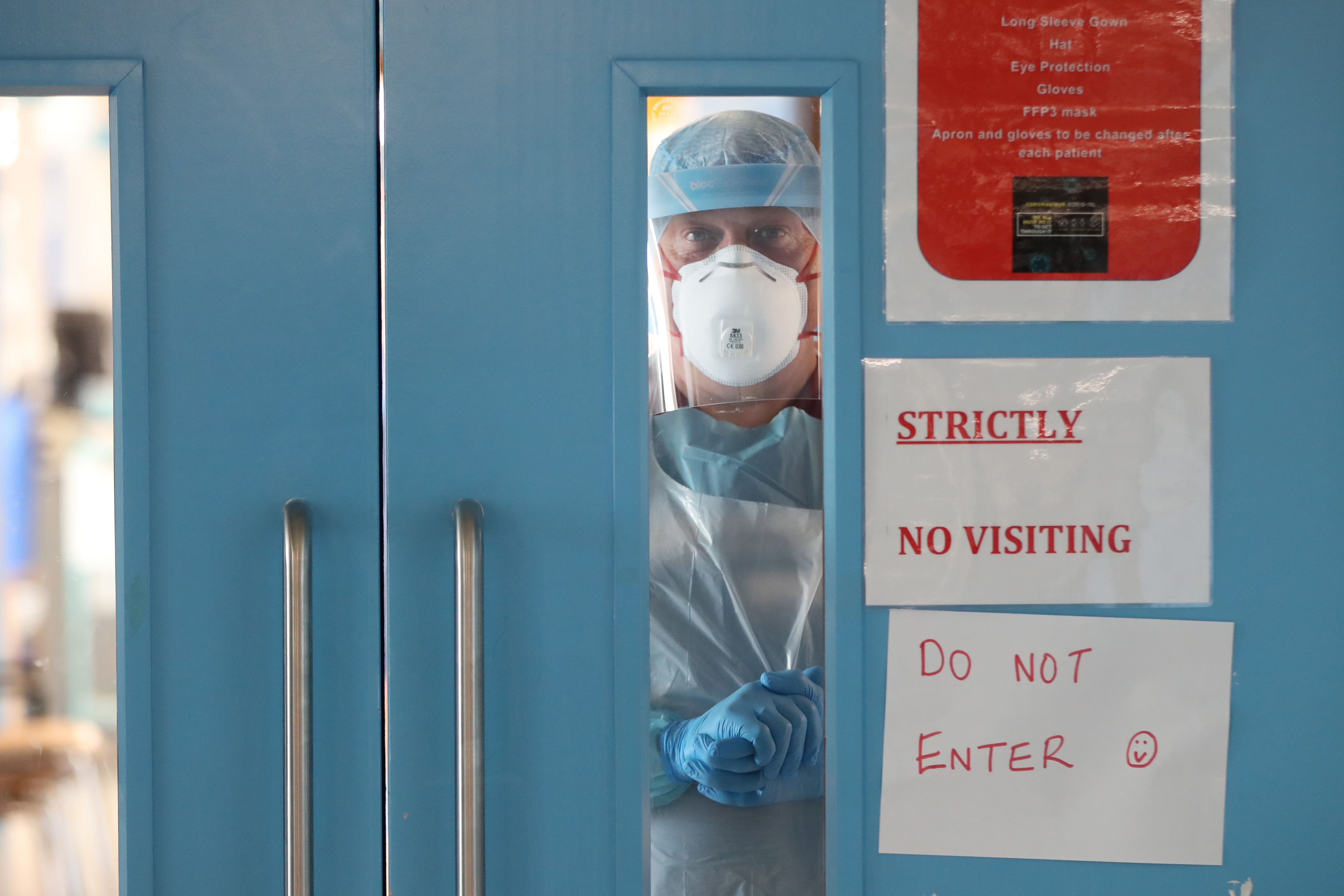Covid inquiry chairwoman concerned at lack of health ethnic minority data in NI
The inquiry heard that statistics were not kept around the ethnic background of those with Covid-19.

Your support helps us to tell the story
From reproductive rights to climate change to Big Tech, The Independent is on the ground when the story is developing. Whether it's investigating the financials of Elon Musk's pro-Trump PAC or producing our latest documentary, 'The A Word', which shines a light on the American women fighting for reproductive rights, we know how important it is to parse out the facts from the messaging.
At such a critical moment in US history, we need reporters on the ground. Your donation allows us to keep sending journalists to speak to both sides of the story.
The Independent is trusted by Americans across the entire political spectrum. And unlike many other quality news outlets, we choose not to lock Americans out of our reporting and analysis with paywalls. We believe quality journalism should be available to everyone, paid for by those who can afford it.
Your support makes all the difference.The chairwoman of the UK Covid-19 Inquiry has expressed concern at the possibility that statistics around ethnic background are not compiled in the Northern Ireland health service.
The issue arose during evidence given by the region’s chief medical officer Sir Michael McBride at the inquiry on Tuesday.
Sir Michael described the availability of data as an area of learning for future pandemics, and that he had been frustrated by a lack of data around clusters and outbreaks in the early days.
“That applies across so many areas and the ability to link that data. There were challenges with data, there were challenges in relation to the development of the dashboard and testing data, there were challenges in relation to the monitoring of PPE supplies,” he said.
“I think that was a reflection of the unprecedented circumstances that we found ourselves in and the unprecedented challenges that the pandemic presented. There was much more information that I would have liked to have had at my disposal than I did have, but we had to work with what we had and develop what we needed.”
Sir Michael told the inquiry that before the setting up of the Covid-19 dashboard it was difficult to communicate the current extent of the virus to the public, in terms of numbers of people testing positive, those in hospital and those in intensive care.
“That was important in terms of bringing the public with us given the asks that we were making of them,” he said.
Counsel to the inquiry Nick Scott further questioned Sir Michael in terms of the recording of ethnic backgrounds of people in Northern Ireland during the pandemic to be able to examine whether the virus was impacting some groups more than others.
He said it had emerged during the pandemic that black and minority ethnic workers in particular had been disproportionately impacted by Covid-19.
Sir Michael said there was “poor ethnicity coding” in Northern Ireland and it had not been possible to look at trends in terms of those from ethnic backgrounds.
“It wouldn’t have been an area that fell within my professional or policy remit, but certainly it was an issue right across the public sector and government that had been recognised in the racial equality report that was published in 2015 by the Executive Office,” he said.
“Within healthcare systems, one can record ethnicity but there is not uniform recording of ethnicity and that is something that clearly does need to be improved.”
Sir Michael said a cross-departmental working group is looking at securing more uniformity and better ethnic monitoring in Northern Ireland.
Mr Scott questioned whether that is still being worked on currently, to which Sir Michael responded: “That’s what I understand. I am not directly involved in the work and I don’t have any responsibility for that but it is something that needs to be significantly improved.”
Inquiry chairwoman Baroness Heather Hallett expressed her concern that in September 2024 we “still don’t have any changes to ensure that you can record ethnicity where there is a disproportionate impact?”
Making reference to former Stormont health minister Robin Swann being expected to give evidence to this module of the inquiry, Lady Hallett asked that it be communicated that this is an issue she has concern around.